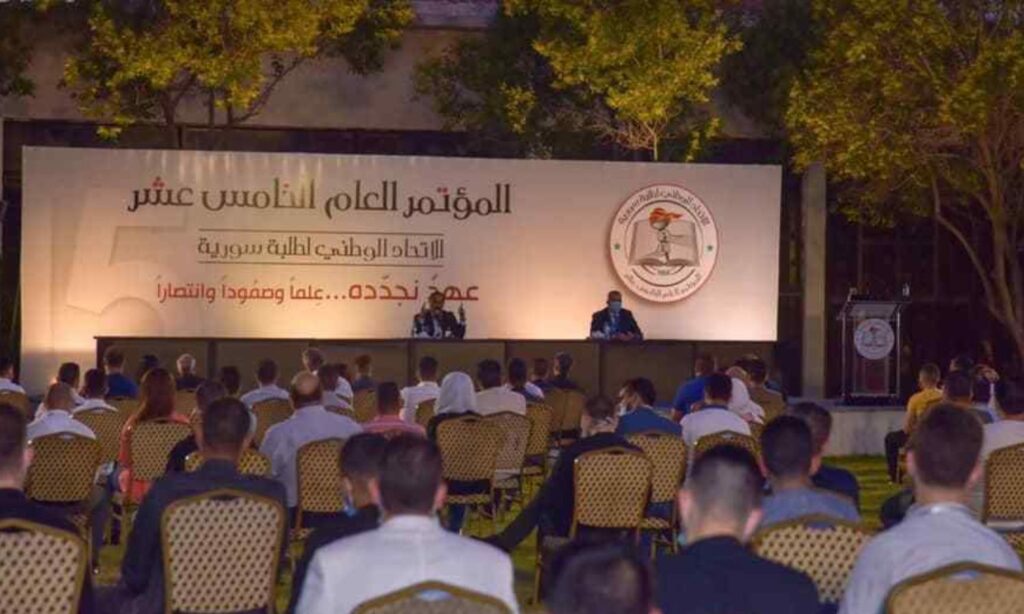The Minister of Higher Education and Scientific Research in the Syrian caretaker government issued a decision to freeze the work of the National Union of Syrian Students (NUSS).
The decision, issued on Thursday, December 26, did not provide any additional details regarding the establishment of an alternative entity to the union, or the fate of the individuals who were managing it.
The decision was not officially published through the Syrian official news agency (SANA) or the Ministry of Higher Education’s accounts, but Enab Baladi was able to verify its authenticity through communication with the media office of the ministry.
Widespread violations
The National Union of Syrian Students (NUSS) has committed numerous violations against university students since the beginning of the Syrian revolution in 2011, starting with suppressing student demonstrations opposing the Syrian regime to arresting and torturing them.
Syrian organizations, research centers, and other entities have documented the violations of the union through several studies and research, the latest of which was an investigation conducted by the Syrian-British Consortium regarding torture crimes and arrests carried out by the National Union of Syrian Students between 2011 and 2013, relying on in-depth interviews with 17 witnesses and three female witnesses, including former students, faculty members, and members of the union itself.
According to the investigation, the union participated in suppression operations and conducted arbitrary arrests based on “suspicions of involvement in anti-regime activities,” and practiced torture against students, through beating, electric shocks, verbal and psychological abuses, and sexual and other violations on a sectarian basis.
The investigation relied on direct testimonies and the experiences that witnesses themselves were subjected to, and does not provide a complete picture of the crimes committed, as the union collaborated with the Syrian security services, and its crimes were part of a wide-ranging crackdown campaign waged by the Syrian regime.
Historical overview
In 1966, the National Union of Syrian Students was founded by legislative decree No. 130, becoming “the sole representative of university students in Syria,” and continued to operate under the umbrella of the Baath Party until Bashar al-Assad, the ousted regime leader, issued a law last January stating that the union would be financially and administratively independent.
The National Union of Syrian Students supervised university training camps for students for years until the decision to dissolve the training centers managing the camps in 2015, alongside accusations of recruiting students for the benefit of security agencies.
With the rise of the role of the union within the Baath Brigades (a militia affiliated with the regime), the US Treasury imposed sanctions on Mohammed Ammar Saati, one of the senior officials of the ruling Baath Party, who chaired the National Union of Syrian Students for 17 years, before Dareen Suleiman took over his position in July 2020.
The Treasury statement noted that Saati “led an organization that facilitated university students’ access to militias supported by Bashar al-Assad.”
A decision freezing the work of the National Union of Syrian Students (Ministry of Higher Education)











